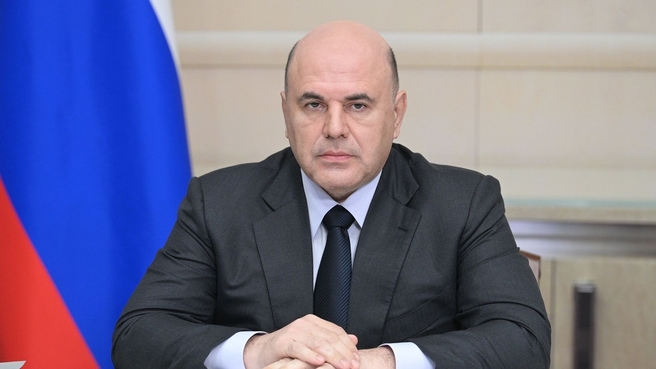The meeting took place via videoconference.
Mikhail Mishustin’s opening remarks:
Good afternoon, colleagues,
We continue to work on meeting the demands of the Armed Forces. Since the establishment of the Coordination Council, we have significantly expanded production volumes for all items in view of the Defence Ministry’s additional needs.
We have streamlined the production of prototypes with high potential. We are expanding production capacities for new items based on the experience gained during the special military operation. These include sought-after weapons and military equipment, radio electronic warfare, telecommunications and navigation equipment. We are filling component inventories, including through import substitution in microelectronics.
Monitoring the timely fulfilment of state orders is one of the key areas of focus for this council. We closely monitor the schedule to see that it is adhered to without fail. In late June, for example, the manufacturer transferred more new Sukhoi Su-35S planes to the Defence Ministry. The next production run is on the way. We also plan to increase the number of fifth-generation fighter jets.
Uralvagonzavod has already dispatched the scheduled batch of produced T90M and T-72B3M tanks. The plant has accelerated production in the past year, boosting its capacity by more than 200 percent. The armoured vehicles it produces is very much needed in the special military operation.
Representatives of the council’s working groups make regular in-person visits to production sites, to identify any supplementary decisions that the council needs to take.
Now we are finishing adjusting the technology chains to guarantee uninterrupted supplies of certain components, and we are taking measures to reduce the defence industry’s debts as this will help them focus on their performance.
As an immediate task, it is necessary to finish redistributing the workload between defence industry companies. We need to boost production capacities, expand cooperation opportunities and help with staffing, including manual labourers and specialised staff.
The council has also been focusing on the fortification of troop deployment lines. The development of defence areas has almost been completed along the effected borders.
We are providing comprehensive support to people whose housing was lost or damaged by shelling. We are also restoring infrastructure, including social and transport facilities.
Yesterday, the Crimean Bridge was subjected to another terrorist attack. The Government commission is already responding to the consequences of this incident. Marat Khusnullin visited the scene of this terrorist act on the President’s instruction. Engineers are inspecting the infrastructure. It is important to restore the operation of this transport artery as soon as possible. I would like to ask the members of the Coordination Council that represent the security agencies, to submit proposals on the issues that need to be resolved after the analysis of the incident.
As for medical care and social support for military personnel, our defenders are receiving the necessary assistance, including emergency and specialised care. We are helping them with medical rehabilitation and prosthetic care. We are also ensuring distribution of the needed medical equipment, technical maintenance, diagnostics and servicing.
In addition, the Defenders of the Fatherland Foundation has started work on the President’s instructions. All regions have set up affiliates.
Despite the sanctions pressure on our economy, the needs of the special military operation have been funded in full. This includes support for domestic production, the Armed Forces, the troops and army units.
We need to send the President-established additional payments and social payments to those in the operation and their family members on time. I am pointing out the need to make sure that our defenders receive every allocated rouble.
As for manufacturing, we need to monitor Government funding to ensure the most effective use of this money. The Federal Treasury conducted audits on various aspects of SMO related funding. Following the results, the total reduction in the cost of the contracts was over 10 billion roubles.
Today we will also review the implementation of our earlier decisions.
I would like to ask the directors of the Defence Ministry, the Interior Ministry, the Russian National Guard, and the Federal Security Service (FSB) to report on the provision of their subordinated departments. I would also like to ask Head of the Treasury Roman Artyukhin to report on the intermediate results of the audits on special military operation related budget spending. Mr Grigorenko will tell us about the amendments to the regulations for interdepartmental interaction in the planning, implementation, monitoring and adjustment of targeted assignments.









